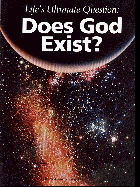|
| HOME |
ARTISTS
BLAKE / CEZANNE LEONARDO / DELACROIX DURER / INGRES MICHELANGELO / RENOIR REMBRANDT / RUBENS
MUSICIANS
BACH / BEETHOVEN MOZART / HANDEL / HAYDN LISZT / MAHLER / PUCCINI RACHMANINOFF/SIBELIUS VIVALDI
PHILOSOPHERS
BACON / BARTH / BERGSON DESCARTES / FICHTE HEGEL / HUME / KANT KIERKEGAARD / LEIBNIZ MARITAIN / MILL / PASCAL ROUSSEAU / WEIL WITTGENSTEIN
SCIENTISTS
COPERNICUS / BRAHE EINSTEIN / FARADAY GALILEO / KEPLER NEWTON / PASTEUR / NOBELISTS / OTHER SCIENTISTS
WRITERS
BAUDELAIRE / BRONTE BROWNING / CHECKOV CHAUCER / DANTE DICKINSON / DONNE DOSTOEVSKY / ELIOT FRANKLIN / GOETHE / KAFKA / LOWELL / PUSHKIN / SHAKESPEARE / TOLSTOY
|
KANT |
|
|
|
"The world depends on a supreme
being, but the things in the world all mutually depend on one another. Taken together they
constitute a complete whole." "The sum total of all
possible knowledge of God is not possible for a human being, not even through a true
revelation. But it is one of the worthiest inquiries to see how far our reason can go in
the knowledge of God." "But if we ask who has so firmly established
the laws of nature and who has limited its operations, then we will come to God as the
supreme cause of the entirety of reason and nature." "Our knowledge is only a shadow
in comparison with the greatness of God, and our powers are far transcended by Him." "That the
world created by God is the best all possible worlds, is clear for the following reason. If
a better world than the one willed by God were possible, then a will better than the
divine will would also have to be possible. For indisputably that divine will is better
which chooses what is better. But if a better will is possible, then so this being who
could express this better will. And therefore this being would be more perfect and better
than God. But this is a contradiction; for God is 'omnitudo realitatis."
"God created the world for his
honor's sake because it is only through the obedience to his holy laws that God can be
honored. For what does it mean to honor God? What, if not to serve him? But how can He be
served? Certainly by trying to entice his favor by rendering him all sorts of praise. For
such praise is best only a means for preparing our hearts to a good disposition. Instead,
the service of God consists simply and solely in following his will and observing his holy
laws and commands." "God's
omnipresence is not local, but virtual. That is, God's power operates constantly and
everywhere in all things." "God is the only ruler of the world. He governs as a monarch, but not as a despot; for He wills to have his commands observed out of love, and not out of servile fear. Like a father, he orders what is good for us, and does not command out of mere arbitrariness, like a tyrant. God even demands of us that we reflect on the reason for his commandments, and he insists on our observing them because he wants first to make us worthy of happiness and then participate in it. God' s will is benevolence, and his purpose is what is best. If God commands something for which we cannot see the reason, then this is because of the limitation of our knowledge, and not because of the nature of the commandment itself. God carries out his rulership of the world alone. For He surveys everything with one glance. And certainly he may often use wholly incomprehensible means to carry out His benevolent aims. (Ibid, 156) __________________
|
|
|

